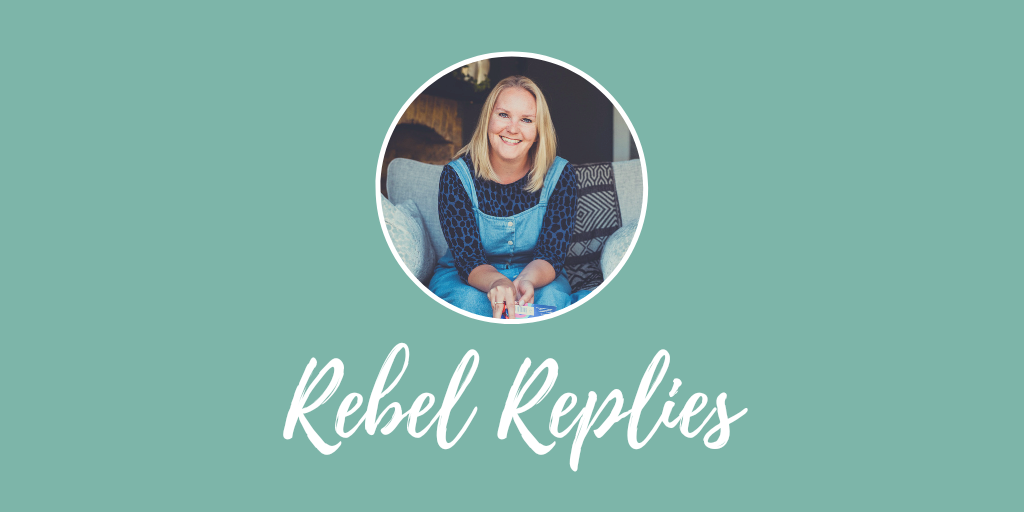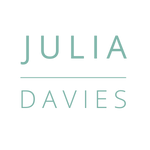
Julia Davies is a life and business coach based in Worthing, Sussex. In a broken society that rewards toxic productivity and hustle, Julia is a quiet rebel. She believes instead in putting health and happiness at the heart of our life and business. She supports women who dare to forge their own path in life and business.
Here, she answers your questions on life and business when you are self-employed, from the perspective of a quiet rebel. Today’s question is from a risk-cautious introvert who is asking for tips how to escape a good job:
I am an introvert, I achieved good grades throughout school and went to a prestigious university and then did a PhD. Having realised that I didn’t want to continue in research, I got a job in communications. Several years later, I now find myself in a senior management position.
I’m not ambitious, I never have been. I’m not a passionate person. I’ve never had a career plan or an ideal job in mind. My career path has been a combination of “escaping” and “good luck”. I now find myself in a role I don’t feel I’m suited for – I get satisfaction from doing a job and doing it well; not from managing other people – and I’m now considering making the leap to freelancing.
How do you make that leap? I would be giving up a well-paid job and diving into a complete unknown. I don’t really have the opportunity to start trying to build a freelance business alongside my current role, as it takes up so much of my time (another reason to leave). How can a risk-cautious introvert escape from a very good job and find something more satisfying?
Firstly, I highly resonate – you’re definitely not alone. This could be me writing 5 years ago, so I know from personal experience how hard it is to look like you are “successful” from the outside, but on the inside you’re not feeling good about it. Particularly when everyone around you is reaching for the promotions and the pay rises (and often there’s a very specific career ladder to climb), if your version of success looks different to that it can be scary to take a risk and follow your own path.
I also think it’s important to recognise that it’s natural to feel like going freelance is a risk. When you’ve taken a high-achiever route through your education, this is magnified. At school and uni, and even through to your working life, if you work hard, you do well, and you move onto the next level with a gold star. But if you step away from the well-trodden career path to go freelance, it’s a different ballgame in a way. It’s totally expected that you’d look at the possibility of going freelance and feel like it’s a risk. There is no path to follow any more. There’s no blueprint for stepping out from the “norm”… so it’s scary; XX amount of work doesn’t automatically lead to YY outcome anymore.
So, how can I escape a good job?
The financial side of things is definitely a major area to tackle when you’re thinking of going freelance. My first piece of advice is to work out exactly what you need each month financially – what’s the bare minimum you could survive on? It will likely be a lot lower than what you currently earn, I suspect. This will help you take the pressure off somewhat. I obviously don’t know your circumstances, but whether you have a partner who can support you financially in the short term or whether you need to save 3 months of money yourself … knowing the bare minimum will reduce that pressure you might be feeling.
How else could you make it feel like less of a risk? Who could you speak to who has done the same thing? Who in your network might be able to offer you work?
I too used to be risk averse and didn’t enjoy change. My advice would be to treat it like an experiment. Try being freelance for 6 months or a year. If it doesn’t work out you can decide to get another permanent job. We often hesitate from making decisions like this because we worry about it not going to plan, but by treating it like an experiment you’ve created a way of getting out of the situation if it doesn’t work out – so you can try it safe in the knowledge that either way you’re going to be ok.
Freelancing as an introvert
As an introvert myself, I can safely say that going freelance was the best thing I did for my energy levels. As introverts, it’s exhausting to be “peopling” all day long, but as a freelancer you get to choose when you talk to people and when you are working independently. When you work for yourself, you get to choose how to do business. If you are a shy introvert and connecting with potential clients via email/LinkedIn works best for you, you can do that and avoid zoom meetings that drain your energy. You get to make the rules according to what feels good for you.
A life that feels satisfying
After a lifetime of a good education and good grades, it seems natural that a good job would follow next. But I think “good jobs” can be a trap – who are they actually good for? If you’re asking “how can I escape my good job?”, it’s time to reassess what a good job really means to you.
You’ve mentioned that you find satisfaction in doing a job well and that you think freelancing might give you that satisfaction. It sounds a lot like you already know what you want to do. And there’s the additional satisfaction from reclaiming your life from your current long working hours. If you were to imagine your ideal lifestyle, what would that look like day to day? What would it feel like? I’d really recommend spending some time thinking about what you want – how is your current work situation contributing to that vision, and how could a new way of working contribute?
Next steps if you’re asking “how can I escape a good job?”
It’s time to make a change. Whether that change looks like implementing new boundaries in your current work role, or whether it means a whole new role, it’s time to make a change. You already know – even if it’s buried deep inside currently – what it is that you want to do next. Don’t wait until you absolutely can’t go on any longer. Life is too short to stay in a situation that’s not working for you. Taking a risk is scary, but would it be worse to look back on life in a few years and wish you’d made changes earlier?
QUESTIONS FOR A QUIET MOMENT
If you’re struggling with this too, here are some questions for you to consider. Maybe you’ll discuss these with a business buddy. Maybe you’ll use them as journal prompts. Or maybe you’ll take the questions on a walk. What matters is spending the time getting clear on your own thoughts, and then taking action. As cheesy as it sounds, nothing will change if you change nothing.
- What does your ideal lifestyle look and feel like?
- Where could you make changes in the short term to move one step towards that ideal lifestyle?
- What changes can you plan to make in the longer term to move towards that ideal lifestyle?
- How does the the discomfort you’re feeling now compare with the discomfort of taking steps out of your comfort zone?
If you too are struggling with an issue that keeps niggling at you (maybe you’re also wondering “how can I escape a good job?”) and you’re done with forcing yourself to just get on with it, the Solution Sessions are a perfect way to get it sorted and move on in a way that feels good. Click here to book.
If you’d like to submit a question, sign up to my email “The Rebel Review” where I regularly share opportunities with my community.
The form you have selected does not exist.

